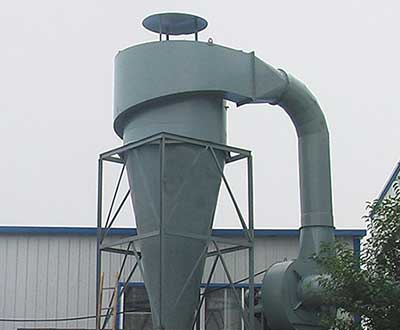How Dust Collectors Improve Air Quality and Worker Safety in Workshops
In industrial and workshop settings, managing airborne particulates is crucial for both operational efficiency and the health of workers. Dust collectors play an essential role in enhancing air quality and ensuring a safer working environment. These systems are designed to capture, filter, and remove dust, debris, and other harmful particles from the air, significantly mitigating risks associated with poor air quality.
Understanding Dust Collection Systems
Dust collectors work by employing various filtration methods to remove particles from the air. Common types include baghouse filters, cartridge collectors, and cyclone separators. Each system utilizes specific mechanisms to trap dust, allowing cleaner air to circulate within the workspace. By capturing fine particles, dust collectors not only improve visibility but also reduce the risk of respiratory issues among workers and read more at www.tysum.com.

Enhancing Air Quality
One of the primary benefits of dust collectors is their ability to enhance air quality. In many workshops, operations such as sanding, cutting, or grinding can produce fine dust that is harmful when inhaled. Prolonged exposure to these particulates can lead to serious health conditions, including asthma, chronic bronchitis, and other respiratory diseases. By effectively removing dust from the air, dust collectors create a cleaner, healthier work environment. Moreover, improved air quality contributes to overall workplace morale. Workers are more likely to feel comfortable and focused in a clean environment, leading to increased productivity. When air quality is prioritized, it reflects a company’s commitment to employee well-being, which can enhance job satisfaction and retention rates.
Promoting Worker Safety
Worker safety is another critical aspect that dust collectors address. In many industries, combustible dust can pose a severe fire or explosion risk. Dust collectors reduce the accumulation of these dangerous particles, thereby lowering the likelihood of accidents. Systems equipped with explosion vents and spark detection can further enhance safety by preventing dust ignition. In addition to preventing hazardous situations, dust collectors help comply with health and safety regulations. Organizations must adhere to specific air quality standards set by regulatory bodies. Implementing a reliable dust collection system ensures compliance, protecting businesses from potential fines and legal issues while promoting a culture of safety.
Operational Efficiency
Beyond health and safety, dust collectors can significantly enhance operational efficiency. Clean machinery and workspaces lead to reduced maintenance costs and longer equipment lifespans. Dust accumulation can lead to mechanical failure or inefficiencies, causing downtime and lost productivity. By keeping equipment clean, dust collectors help ensure that operations run smoothly. Furthermore, when air quality is improved, workers are less likely to take sick days due to respiratory issues, resulting in a more consistent workforce. This continuity contributes to higher overall productivity and can positively affect the bottom line.
Investing in a dust collector system is not merely a compliance measure but a fundamental step towards creating a healthier, safer, and more productive workplace. By improving air quality and promoting worker safety, these systems protect employees from the hazards associated with airborne particulates and combustible dust. As industries continue to evolve, prioritizing air quality and safety through effective dust collection will remain a critical focus, ensuring both worker well-being and operational success and how does osha enforce its standards. Ultimately, a clean work environment is essential for fostering a culture of safety, efficiency, and respect for the workforce.